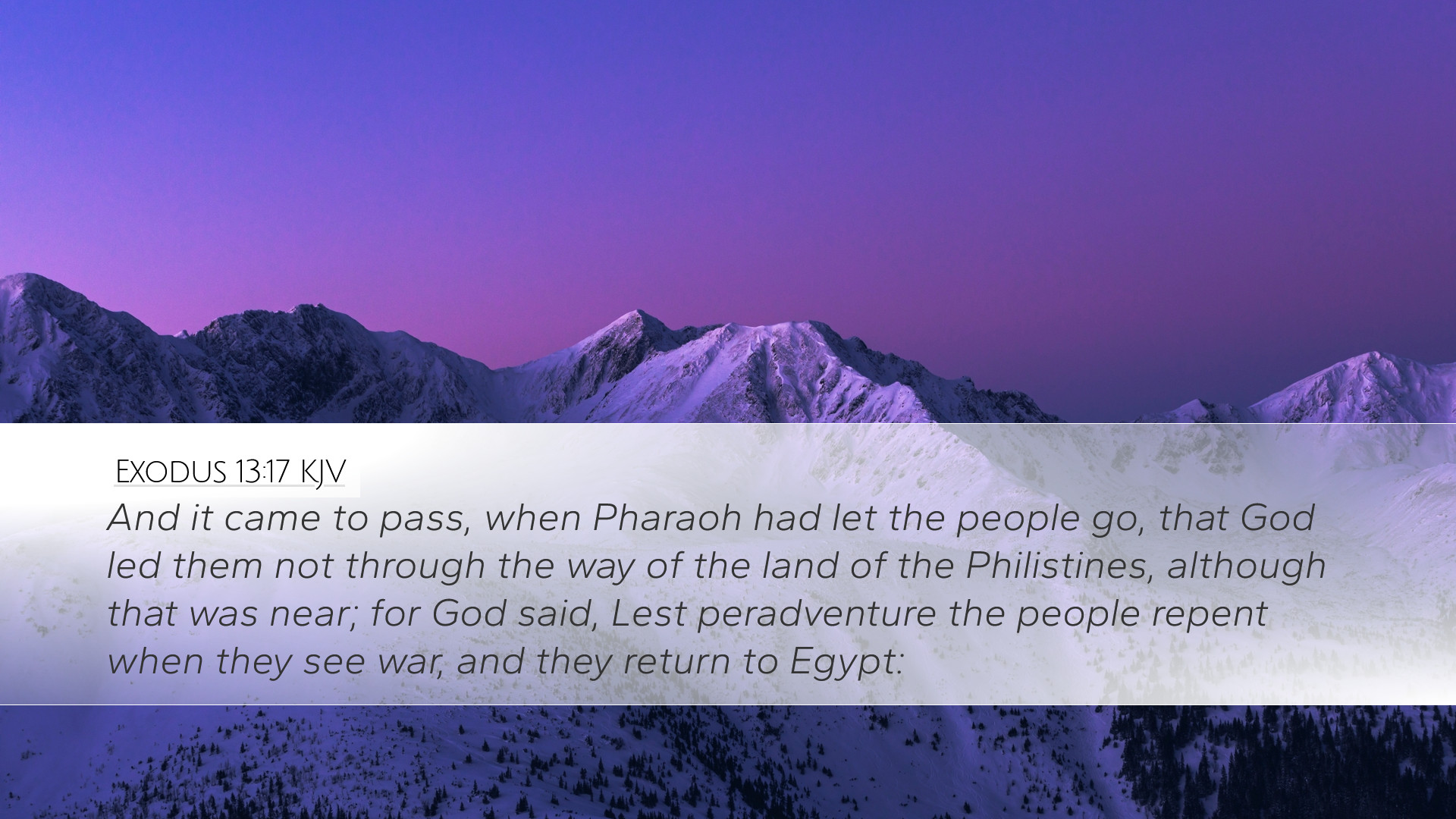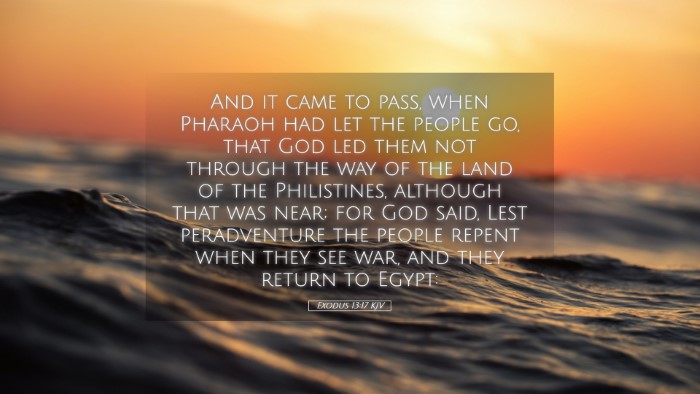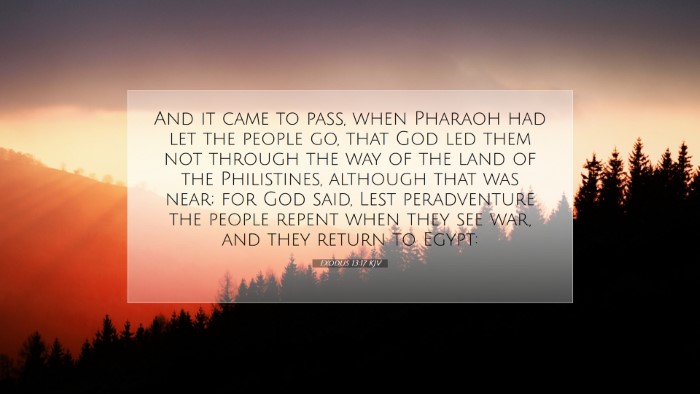Commentary on Exodus 13:17
Exodus 13:17 (KJV): “And it came to pass, when Pharaoh had let the people go, that God led them not through the way of the land of the Philistines, although that was near; for God said, Lest peradventure the people repent when they see war, and they return to Egypt.”
Introduction
This verse marks a pivotal moment in the narrative of the Exodus. It reflects God’s guiding hand over the Israelites as they embark on their journey to freedom. Commentators emphasize the significance of divine wisdom in leadership, providing insights that are still relevant for pastors, students, and theologians today.
Contextual Setting
Exodus 13:17 occurs right after the Israelites' deliverance from Egyptian bondage, as described in earlier chapters. The choice of a particular route for their journey is underscored as significant, prompting questions about divine guidance and human response under pressure.
Theological Insights
In this brief verse, we can discern several theological themes:
- Divine Guidance: God’s intervention in leading His people away from immediate danger showcases His care and foresight.
- Human Limitation: The acknowledgement that the Israelites might change their hearts and retreat underscores a recurring biblical theme of human frailty.
- Preparation for Struggle: The avoidance of the Philistine territory hints at the necessity of spiritual preparation before facing immediate trials.
Exegesis and Analysis
According to Matthew Henry's Commentary, “God did not lead them through the way of the land of the Philistines, though it was nearer, because He knew their hearts.” This highlights the understanding that God's decisions are based on His omniscience. He recognizes the potential fear that war could evoke in His people, and thus He guides them along a longer yet safer path.
Adam Clarke adds that this passage demonstrates God’s knowledge of human nature and the trials that can bring about reversion to previous states of bondage. The prospect of war could lead them to doubt God's promises, leading them back to Egypt instead of toward the Promised Land.
Albert Barnes indicates God's protective role, stating, “The Lord took care of His people and led them in ways that were best suited for them.” This assertion reinforces the notion that God's plan often considers our spiritual maturity and readiness to face adversities.
Practical Applications
From Exodus 13:17, several lessons emerge that are applicable in pastoral ministry and personal discipleship:
- Trust in God's Direction: Believers are encouraged to trust God’s leading, especially when the path appears longer or more complex than anticipated.
- Understanding Spiritual Readiness: Just as the Israelites had to be prepared for future challenges, so too must modern believers undergo training and spiritual fortification.
- Wisdom in Leadership: Pastors and leaders are reminded that wise decision-making involves understanding the struggles and fears of those they lead.
Conclusion
Exodus 13:17 speaks volumes about God’s wisdom and the intricate dynamics of human faith. The journey to freedom is not always immediate or direct but requires patience, understanding, and trust in divine leadership. In their various commentaries, Matthew Henry, Adam Clarke, and Albert Barnes collectively remind us that God’s ways, while often shrouded in mystery, are crafted to guide His people to their ultimate destination with care and intentionality.


